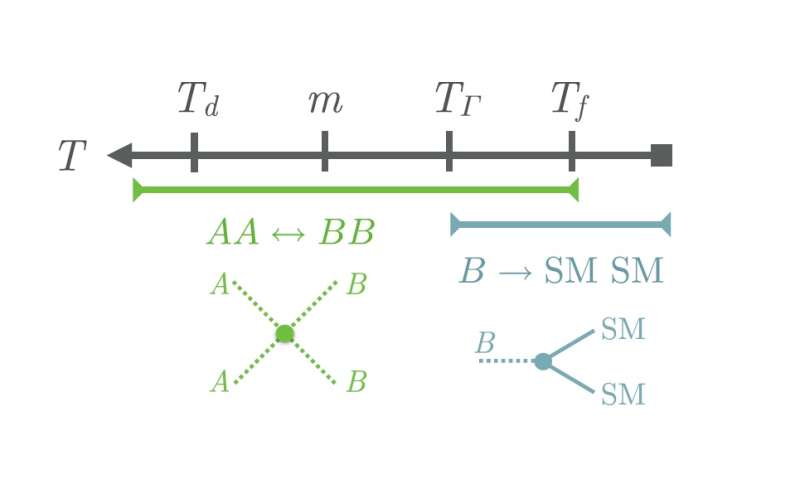Best of Last Week – Smoother dark matter, collecting space junk and the health benefits of nuts

(ScienceX)—It was another good week for physics as a team in the U.S. found that 'spooky' sightings in a crystal pointed to an extremely rare quantum spin liquid—a rare new material that was synthesized for the first time just a year ago. Also, a team working at the ESO's VLT Survey Telescope in Chile found evidence suggesting that dark matter may be smoother than expected—or, as they describe, more smoothly distributed and less dense. Meanwhile, another team at Cornell University presented the case for co-decaying dark matter to explain dark matter freeze-out or why there is less dark matter today than there was in the past.
There was also space news as a team with Japan Aerospace Exploration Agency announced that they had launched a cargo ship carrying a 'space junk' collector—the experimental device will work from the International Space Station using a tether to slow space junk causing it to fall to Earth. Also, it was noted that with the passing of John Glenn, all 'Original Seven' American astronauts are now dead. Known as the Mercury 7, the astronauts paved the way for future American endeavors in space. And University of Connecticut engineering professor Brice Cassenti offered some insight into a research paper released by NASA recently, detailing work on the study of a paradoxical EM propulsion drive—one that could theoretically take astronauts to Mars in just 70 days.
In other news, a team of researchers at Michigan State University announced that they had developed a flexible device capturing energy from human motion—allowing small devices to be used without charging or batteries. Also, a team at Northwestern University released their findings of a study that showed that the rhythm of breathing affects memory and fear—due to changes in electrical activity in the brain. And another team at the University of Illinois announced a new discovery that may lead to the development of a super premium gasoline—one that could flow up to 30 times faster, allowing a car to fill up in just seconds.
And finally, if, like most people, you would like to live a longer, healthier life, you might be interested in the results of a study by a combined team of researchers from Imperial College London and the Norwegian University of Science and Technology—they found that a handful of nuts a day cuts the risk of a wide range of diseases such as cancer and heart disease and reduces the risk of premature death by 22 percent.
© 2016 ScienceX